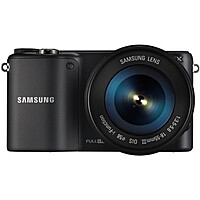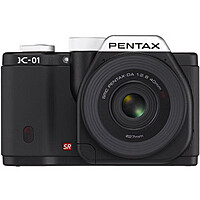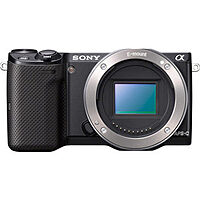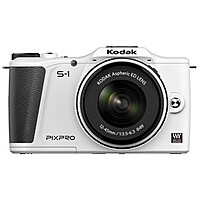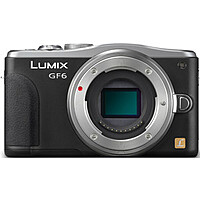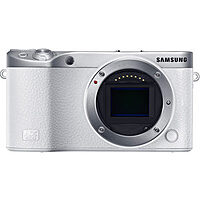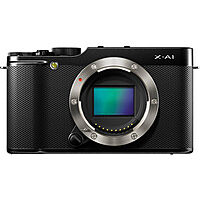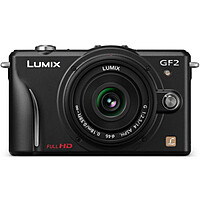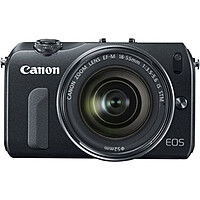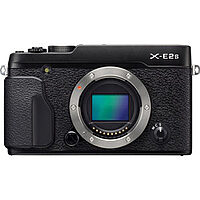Olympus PEN E-PM2 with Olympus PEN E-PM1 Overview
Let's compare PEN E-PM1 with PEN E-PM2. Both cameras produced
Olympus.
These models are included in the Entry-Level Mirrorless cameras.
Olympus E-PM1 was released in 2011, and Olympus E-PM2 in 2013.
PEN E-PM2 is newer, which is a plus. PEN E-PM1 2 years older.
The sensor resolution of PEN E-PM1 is greater than that of PEN E-PM2. However, the difference of 4 MP is not very significant.
The more megapixels the camera has, the more detailed and clear the picture will be. The number of megapixels will also affect the maximum size of the photos, which then can be printed without loss of quality.
At the second camera (PEN E-PM2), the minimum ISO value is lower, which gives more opportunities for shooting in daylight.
A larger maximum ISO allows you to take good pictures in the dark.
At Olympus E-PM2, the maximum ISO is greater by 12800.
Both cameras have Sensor-shift image stabilization.
Both cameras feature a 3-inch fixed screen.
Both cameras have a electronic (optional) viewfinder.
All viewfinders has no electronic viewfinderk dot resolution.
Burst mode, also called continuous shooting mode, sports mode or continuous high speed mode, is a shooting mode in still cameras. Olympus PEN E-PM1 has 8.0 fps continuous shooting.
Olympus PEN E-PM1 has 8.0 fps continuous shooting.
| General |
PEN E-PM1 |
PEN E-PM2 |
| Brand |
Olympus
|
Olympus
|
| Model |
PEN E-PM1 |
PEN E-PM2 |
| Announced |
November, 2011 |
May, 2013 |
| Body Type |
Rangefinder-style mirrorless |
Rangefinder-style mirrorless |
| Lens |
| Lens Mount |
Micro Four Thirds |
Micro Four Thirds |
| Manual Focus |
|
|
| Focal Lens Multiplier |
2 |
2 |
| Number of Lenses |
103 |
103 |
| Macro Focus Range |
n/a |
n/a |
| Screen |
| Screen Size |
3" |
3" |
| Screen Type |
Fixed |
Fixed |
| Screen Resolution |
460k pixels |
460k pixels |
| Touch Screen |
|
|
| Live View |
|
|
| Viewfinder |
| Viewfinder |
Electronic (optional) |
Electronic (optional) |
| Viewfinder Resolution |
no electronic viewfinder |
| Viewfinder Coverage |
n/a% |
n/a% |
| Viewfinder Magnification |
0.0 |
0.0 |
| Autofocus |
| AF Touch |
|
|
| AF Continuous |
|
|
| AF Single |
|
|
| AF Tracking |
|
|
| AF Selective |
|
|
| AF Center |
|
|
| AF Multi Area |
|
|
| AF Live View |
|
|
| AF Face Detection |
|
|
| AF Contrast Detection |
|
|
| AF Phase Detection |
|
|
| Number of Focus Points |
35 |
35 |
| Number of Cross Focus Points |
0 |
0 |
| Photography Features |
| RAW Support |
|
|
| Min Shutter Speed |
1/60 sec |
1/60 sec |
| Max Shutter Speed |
1/4000 sec |
1/4000 sec |
| Continuous Shooting |
6.0 fps |
8.0 fps |
| Shutter Priority |
|
|
| Aperture Priority |
|
|
| Manual Exposure Mode |
|
|
| Exposure Compensation |
|
|
| Custom White Balance |
|
|
| Image Stabilization |
|
|
| Built-in Flash |
|
|
| Flash Range |
no built-in flash |
7.00 |
| Flash Modes |
Auto, On, Off, Red-Eye, Fill-in, Slow Sync, Manual (3 levels) |
Auto, On, Off, Red-Eye, Fill-in, Slow Sync, Manual (3 levels) |
| External Flash |
|
|
| AE Bracketing |
|
|
| AE Bracketing Range |
±3 EV |
±3 EV |
| WB Bracketing |
|
|
| Sensor |
| Sensor Size |
Four Thirds |
Four Thirds |
| Sensor Type |
CMOS |
CMOS |
| Sensor Dimensions |
17.3 x 13 mm |
17.3 x 13 mm |
| Sensor Area |
224.9 mm² |
224.9 mm² |
| Sensor Resolution |
12 MP |
16 MP |
| Max Image Resolution |
4032 x 3024 |
4608 x 3456 |
| Max Native ISO |
12800 |
25600 |
| Min Native ISO |
100 |
200 |
| Max Boosted ISO |
0 |
0 |
| Min Boosted ISO |
0 |
0 |
| Video Features |
| 4K |
|
|
| Max Video Resolution |
1920 x 1080 |
1920 x 1080 |
| Video Formats |
AVCHD, Motion JPEG |
MPEG-4, H.264, Motion JPEG |
| Timelapse Recording |
|
|
| Microphone Port |
|
|
| Headphone Port |
|
|
| Exposure Modes |
| Multi-Segment |
|
|
| Average |
|
|
| Spot |
|
|
| Partial |
|
|
| AF-Area |
|
|
| Center Weighted |
|
|
| Connectivity |
| GPS |
None |
None |
| Wireless Connectivity |
Built-In |
Built-In |
| Bluetooth |
|
|
| HDMI |
|
|
| USB |
USB 2.0 (480 Mbit/sec) |
USB 2.0 (480 Mbit/sec) |
| Battery |
| Battery Life |
330 shots |
360 shots |
| Battery Type |
Battery Pack |
Battery Pack |
| Battery Model |
BLS-5 |
BLS-5 |
| Physical |
| Weight |
265 g |
269 g |
| Physical Dimensions |
110 x 64 x 34 mm |
110 x 64 x 34 mm |
| Environmental Sealing |
|
|
| Water Proof |
|
|
| Dust Proof |
|
|
| Shock Proof |
|
|
| Crush Proof |
|
|
| Freeze Proof |
|
|
| Shock Proof |
|
|
| Storage |
| Storage Type |
SD/SDHC/SDXC |
SD/SDHC/SDXC |
| Storage Slots |
1 |
1 |
| Other Features |
| Self Timer |
|
|
| Selfie Friendly |
|
|
Interesting Entry-Level Mirrorless

